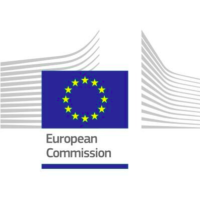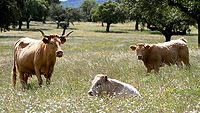BRUSSELS—The European Commission is going ahead with a 2-year moratorium on three widely used pesticides that are potentially harmful to bees, although E.U. countries remain split on the issue. The decision follows reports published in January by the European Food Safety Authority (EFSA) concluding that the three so-called neonicotinoids—clothianidin, imidacloprid, and thiamethoxam—pose an "acute risk" to honey bees essential to farming and natural ecosystems.
After two inconclusive votes by member states, the commission is allowed to drive its proposal through. The first of these votes happened on 15 March in the Standing Committee on the Food Chain and Animal Health, where 13 member states endorsed the proposal for a moratorium, nine voted against, and five abstained. But because each country has a different weight depending on its population size, the proposal didn't get the required "qualified majority."
Today, member states voted again in an appeals committee. This time, 15 backed the ban, while eight rejected it and four abstained—which, despite the growing support, is still short of a qualified majority. Now, the commission has decided to use its right to go ahead with the plan.
"The commission's role is to protect consumers. EFSA's reports have revealed a risk, so we're taking time to step back and assess the situation," says a Brussels source close to the negotiations—adding that countries that have already restricted neonicotinoids on their own initiative, such as France and Slovenia, have not suffered a drop in agricultural production.
Germany has sided with France and others by approving the ban in the appeal vote after abstaining last month. That's a significant move for a large, powerful E.U. country that is home to Bayer CropScience, one of the two firms that manufactures neonicotinoids, says Marco Contiero, Greenpeace's director for E.U. agriculture policy here. (The other manufacturer is Syngenta in Switzerland.)
In contrast, the United Kingdom rejected the ban today after abstaining in the previous vote, arguing that the scientific basis for the commission's proposal is unsound. In a letter published by British newspaper The Guardian today, Owen Paterson, the United Kingdom's secretary of state for the environment and rural affairs, wrote to Syngenta that his government is "extremely disappointed that the Commission decided to propose significant restrictions on neonicotinoids on the basis of the partial risk assessment carried out by EFSA using unfinished and unagreed guidance."
Lynn Dicks, a researcher specializing in bee conservation at the University of Cambridge in the United Kingdom, said in a statement today that neonicotinoids are one of many factors "that MIGHT be causing a serious problem" to bees, so "we should err on the side of caution and stop using them while we find out more."
Environmental groups that applaud the commission's resolve say the restrictions should go even further. "We need a longer ban to have a serious impact assessment and monitoring at the member state level according to E.U.-wide methodologies," Contiero says.
The 2-year restriction to pesticide use will apply to plants attractive to bees (maize, cotton, sunflower, and rapeseed) starting 1 December. It will apply across the European Union, including in the countries that opposed the moratorium.



